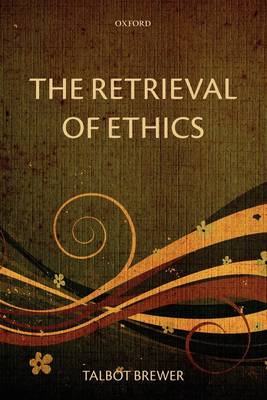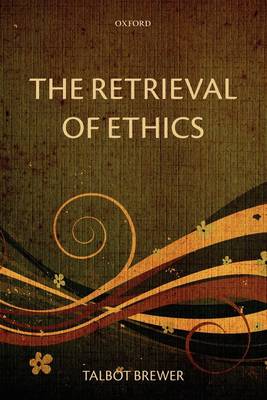
- Afhalen na 1 uur in een winkel met voorraad
- Gratis thuislevering in België vanaf € 30
- Ruim aanbod met 7 miljoen producten
- Afhalen na 1 uur in een winkel met voorraad
- Gratis thuislevering in België vanaf € 30
- Ruim aanbod met 7 miljoen producten
Zoeken
Omschrijving
Talbot Brewer presents an invigorating new approach to ethical theory, in the context of human selfhood and agency. The first main theme of the book is that contemporary ethical theorists have focused too narrowly on actions and the discrete episodes of deliberation through which we choose them, and that the subject matter of the field looks quite different if one looks instead at unfolding activities and the continuous forms of evaluative awareness that carry them forward and that constitute an essential element of those activities. The second is that ethical reflection is itself a centrally important life activity, and that philosophical ethics is an extension of this practical activity rather than a merely theoretical reflection upon it. Brewer's approach is founded on a far-reaching reconsideration of the notions of the nature and sources of human agency, and particularly of the way in which practical thinking gives shape to activities, relationships and lives. He contests the usual understanding of the relationship between philosophical psychology and ethics. The Retrieval of Ethics shows the need for a new contemplative vision of the point or value of human action -- without which we will remain unable to make optimal sense of our efforts to unify our lives around a tenable conception of how best to live them, or of the yearnings that draw us to our ideals and to each other.
Specificaties
Betrokkenen
- Auteur(s):
- Uitgeverij:
Inhoud
- Aantal bladzijden:
- 354
- Taal:
- Engels
Eigenschappen
- Productcode (EAN):
- 9780199692224
- Verschijningsdatum:
- 11/06/2011
- Uitvoering:
- Paperback
- Formaat:
- Trade paperback (VS)
- Afmetingen:
- 155 mm x 231 mm
- Gewicht:
- 521 g

Alleen bij Standaard Boekhandel
+ 190 punten op je klantenkaart van Standaard Boekhandel
Beoordelingen
We publiceren alleen reviews die voldoen aan de voorwaarden voor reviews. Bekijk onze voorwaarden voor reviews.











